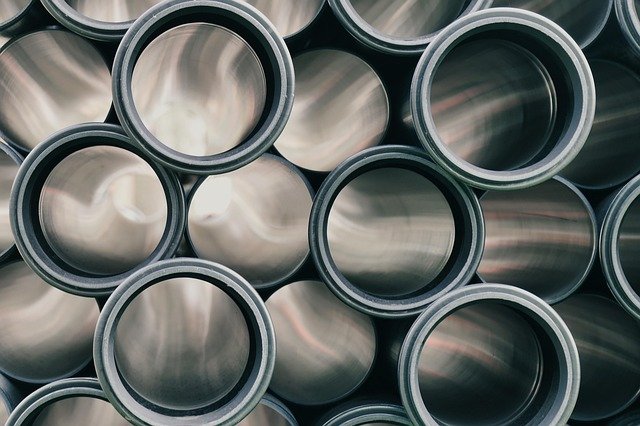Welder Training and Career in the UK: 2025 Industry Prospect Analysis
By 2025, welding is projected to be a critical skill across core UK sectors, including shipbuilding, automotive manufacturing, and the rapidly expanding renewable energy sector. Professional training programs are structured to effectively blend theoretical knowledge with intensive practical experience in advanced techniques like MIG and TIG welding. The curriculum includes essential study of technical drawings and stringent safety regulations. This analysis highlights the growing demand for certified professionals, specialization opportunities, and leadership roles within national industry.

Britain’s manufacturing and construction sectors are witnessing a remarkable transformation, with welding professionals positioned at the forefront of this industrial evolution. The demand for qualified welders continues to surge as the country invests heavily in infrastructure, green energy projects, and advanced manufacturing capabilities.
Why Welding Remains a Key Skill in UK Shipbuilding by 2025
The UK’s maritime industry is experiencing a renaissance, particularly in naval construction and offshore wind farm development. Shipyards across Portsmouth, Glasgow, and Newcastle are expanding their operations to meet growing demand for both military vessels and commercial shipping. Modern shipbuilding requires welders who understand complex hull designs, work with advanced materials like high-strength steel alloys, and maintain strict quality standards for maritime safety certification.
Offshore wind installations represent another significant growth area, with the government’s commitment to renewable energy creating thousands of welding positions in fabrication yards and installation vessels. These projects demand precision welding skills for constructing turbine foundations and offshore platforms that must withstand harsh marine environments.
How Training Combines Theory with MIG/TIG Advanced Practice
Contemporary welding education has evolved far beyond basic torch handling. Modern training programmes integrate comprehensive theoretical knowledge with hands-on experience using Metal Inert Gas (MIG) and Tungsten Inert Gas (TIG) welding techniques. Students learn metallurgy principles, understanding how different metals behave under heat and stress, which proves essential for selecting appropriate welding methods for specific applications.
Advanced practice sessions focus on precision techniques required for aerospace components, pressure vessels, and structural steelwork. Training facilities now feature computerised welding simulators that allow students to practice complex joints without consuming materials, while providing real-time feedback on technique and quality. This combination of traditional craftsmanship with modern technology ensures graduates meet industry expectations for both speed and accuracy.
Essential Study of Technical Drawings and Safety Rules
Professional welding extends far beyond manual dexterity, requiring thorough understanding of engineering drawings, weld symbols, and quality specifications. Students learn to interpret complex blueprints, identify different joint types, and understand dimensional tolerances that affect structural integrity. This technical literacy enables welders to work independently on complex projects without constant supervision.
Safety training forms the foundation of all welding education, covering hazard identification, proper ventilation requirements, and personal protective equipment selection. Modern safety protocols address emerging concerns like fume extraction in confined spaces and electromagnetic field exposure from advanced welding equipment. Understanding these principles protects both the welder and ensures compliance with Health and Safety Executive regulations that govern industrial welding operations.
Growing Demand for Certified Welding Specialists
Industry certification has become increasingly important as projects become more complex and quality standards more stringent. The Welding Institute (TWI) and City & Guilds offer various qualification levels, from basic competency certificates to advanced specialist endorsements. Employers increasingly prefer candidates with multiple certifications covering different welding processes and material types.
Certified welders command higher wages and enjoy greater job security, particularly those qualified for specialist applications like underwater welding, aerospace components, or nuclear facility maintenance. The certification process involves both practical demonstrations and written examinations, ensuring welders possess comprehensive knowledge of their chosen specialisation.
| Training Provider | Course Duration | Certification Level | Cost Estimation |
|---|---|---|---|
| City & Guilds Approved Centres | 6-12 months | Level 2-3 Diploma | £2,500-£4,500 |
| TWI Professional Development | 2-8 weeks | Specialist Endorsements | £1,200-£3,000 |
| Local Further Education Colleges | 1-2 years | BTEC/NVQ Levels 1-3 | £1,800-£3,500 |
| Private Training Academies | 3-6 months | Industry Certificates | £3,000-£6,000 |
Prices, rates, or cost estimates mentioned in this article are based on the latest available information but may change over time. Independent research is advised before making financial decisions.
Opportunities for Specialization and Supervisory Roles
Experienced welders can pursue numerous specialisation paths that offer enhanced career prospects and increased earning potential. Underwater welding represents one of the most lucrative specialisations, combining commercial diving skills with advanced welding techniques for offshore platform maintenance and ship hull repairs. Pipeline welding offers opportunities to work on major infrastructure projects across the UK and internationally.
Supervisory roles become available to welders who develop leadership skills alongside their technical expertise. Welding inspectors, site supervisors, and quality control specialists command premium salaries while contributing to project management and team development. These positions often require additional qualifications in project management or quality assurance but provide pathways to senior management roles within construction and manufacturing companies.
The welding industry’s future appears exceptionally bright, with technological advances creating new opportunities while traditional skills remain in high demand. As the UK continues investing in infrastructure modernisation and green energy initiatives, skilled welders will play an increasingly vital role in shaping the country’s industrial landscape.




